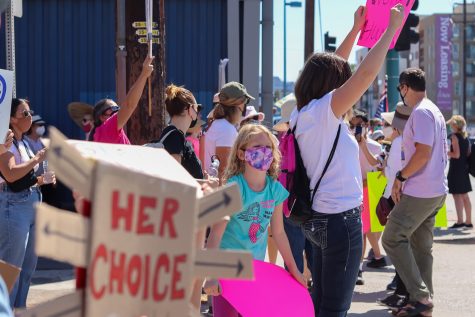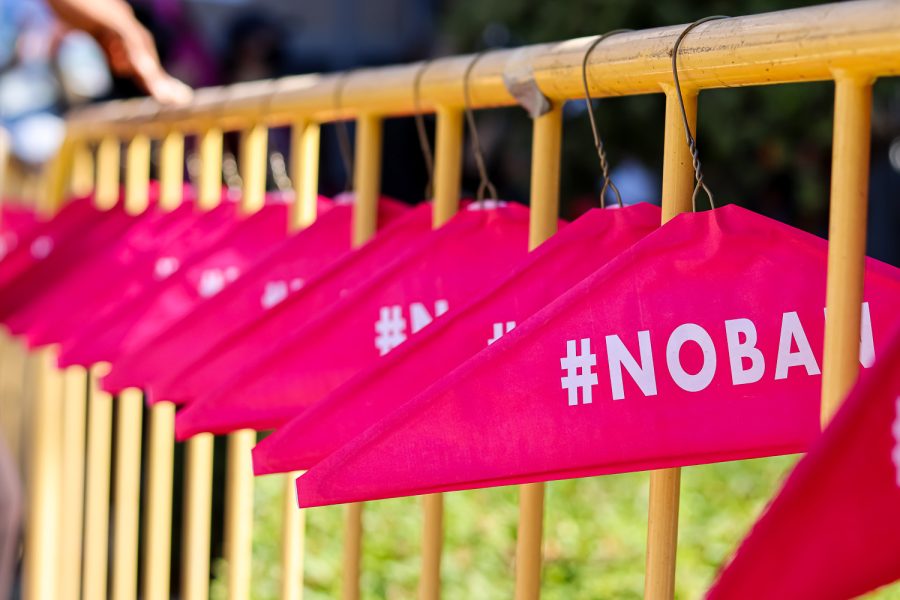Opinion: The Texas ‘Heartbeat Bill’ is not only shortsighted, but a human rights violation
October 7, 2021
The Texas’ “Heartbeat bill,” also known as Senate Bill 8, makes getting an abortion after a heartbeat is detected, which is usually at about six weeks, illegal. The average time most women suspect they are pregnant is around five to six weeks, when pregnancy symptoms such as morning sickness and hormonal changes barely start to show.
According to an article by CNN, “nearly half of all pregnancies are unintended or, more specifically, 45-49% of the time they are unplanned.” If someone is not actively trying to conceive, they have no reason to take a pregnancy test and will therefore find out too late to decide whether or not to get an abortion.
The law makes no exceptions for pregnancies caused by sexual assault, only in cases of a medical emergency. However, the bill doesn’t specify what is classified as an emergency.
Although the person seeking an abortion won’t face legal repercussions, physicians and anyone who aid in the abortion will. According to NPR, this could also mean “those who give a woman a ride to a clinic or provide financial assistance to obtain an abortion.” It allows average people to play the role of law enforcement as they can sue those who break the law for $10,000.
Every day it seems as if we’re going back in time since the passing of Roe v. Wade in 1973. Those who are capable of carrying a baby don’t have a say in what they can and can’t do with their bodies. This abortion law not only conflicts with the Due Process Clause of the 14th Amendment’s protection of a person’s right in their decision to terminate a pregnancy, it also violates our right to privacy granted under the Fourth Amendment. Why is something private, like someone’s reproductive health, becoming public for others to decide?

Variations of the Heartbeat Bill and other restrictive abortion laws are in act in 16 other states, including Alabama, Arizona, Arkansas, Idaho, Indiana, Kansas, Kentucky, Louisiana, Montana, New Hampshire, Ohio, Oklahoma, South Carolina, South Dakota, West Virginia and Wyoming.
But it doesn’t stop there. A number of other states, such as Florida, Georgia and Mississippi, are working on applying similar, if not more restrictive, abortion laws.
No matter which week of a pregnancy an abortion is banned at, one thing that all these abortion laws have in common is that it takes away choice. Not one of these laws takes into consideration what the person wants, instead placing more importance on what’s inside their body. Another person’s body and what they decide to do with it shouldn’t be of anyone’s concern unless it puts other living people at risk. Why does an embryo, which isn’t developed enough to be considered a baby, have more rights than the person who is carrying it?
These abortion laws are not a means to protect expectant mothers, as the author of the bill, Texas State Sen. Bryan Hughes (R-Mineola), claimed. It’s a way for them to control and have power over women.
Pro-lifers and the people who are writing and enforcing these laws are not the ones who will be providing support for the child once it’s born. The responsibility will fall on the person who’s giving birth.
Not only is giving birth very demanding on a person’s body, “700 women die each year in the United States as a result of pregnancy or delivery complications,” according to the Centers for Disease Control and Prevention. The World Health Organization also reported that 1 out 3 abortions were performed in unsafe conditions, with 4.7% to 13.2% resulting in death.
Imagine how much that number will increase because people can’t find an accessible way to get an abortion. A report by the Atlantic states that “abortion rates in countries where abortion is legal are similar to those in countries where it’s illegal. In parts of the world where abortion is illegal, botched abortions still cause about 8 to 11 percent of all maternal deaths, or about 30,000 each year.” These abortion laws won’t prevent abortions, they’ll just lead to unsafe ones.
Not so coincidentally, a majority of the states that want to enforce abortion bans reside in the southern part of the U.S., where political views tend to be conservative leaning. 66% are opposed to the idea of government-funded healthcare, and they have a higher percentage of people who are against wearing masks or getting vaccinated.
Pro-lifers also usually base their view on abortion upon religion. 79% of people who belive in God think abortion should be illegal, according to a report by the Pew Research Center. It seems more like people are pushing their own personal agendas and opinions about abortion into these laws rather than thinking about what’s best for all.
If these people are truly pro-life, they should support the lives of the people who are actually living.
